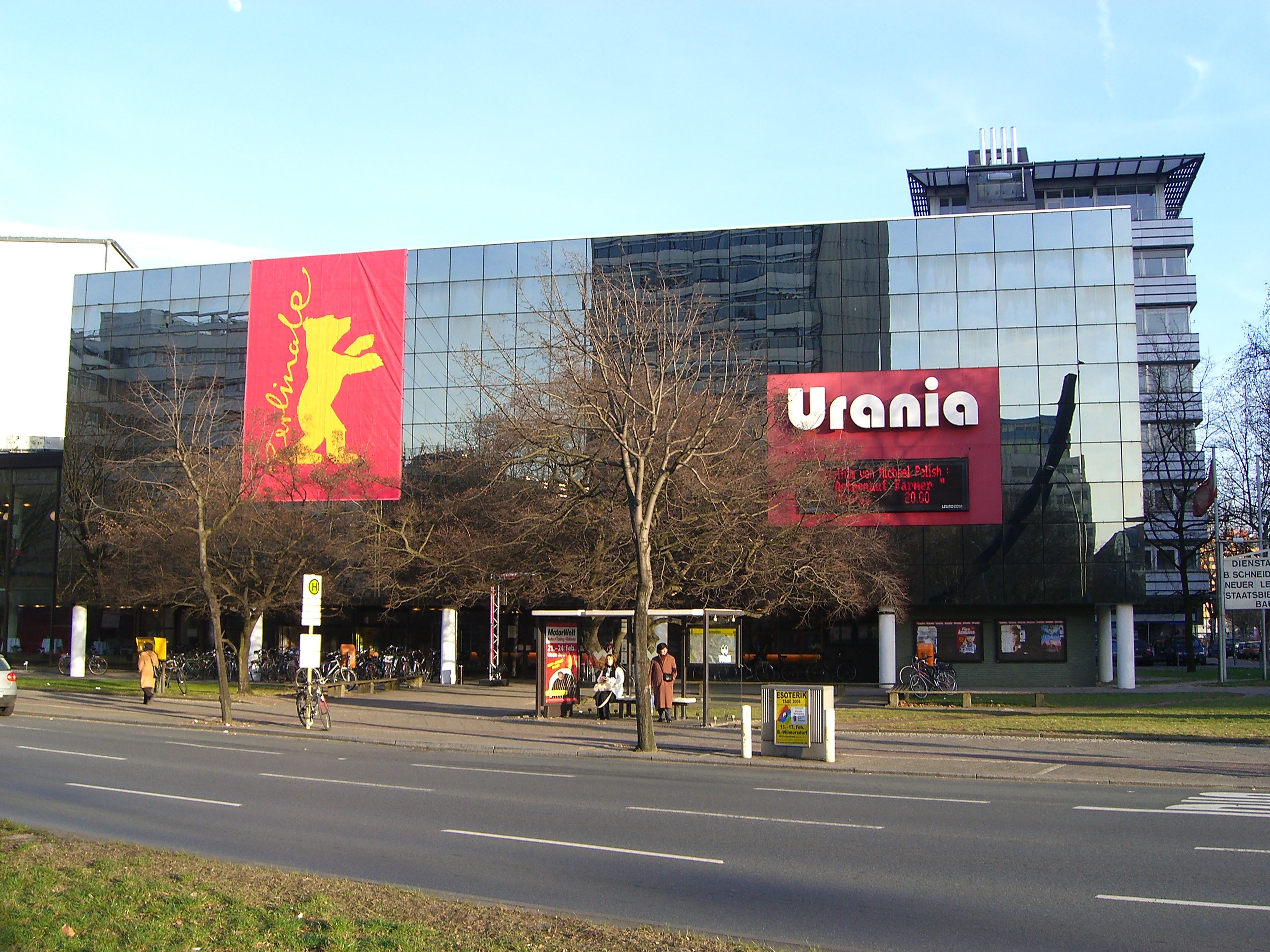Urania (Berlin) on:
[Wikipedia]
[Google]
[Amazon]
 Urania is a
Urania is a
''Teil 1
'
''Teil 2''
* Max Wilhelm Meyer (ed.)
''Illustrirter Leitfaden der Astronomie, Physik und Mikroskopie in Form eines Führers durch die Urania zu Berlin.''
1892.
''Denkschrift zum 25jährigen Bestehen der Gesellschaft Urania (1888–1913)''
1913. *
science centre
A science museum is a museum devoted primarily to science. Older science museums tended to concentrate on static displays of objects related to natural history, paleontology, geology, industry and industrial machinery, etc. Modern trends in m ...
and scientific society in Berlin
Berlin ( , ) is the capital and largest city of Germany by both area and population. Its 3.7 million inhabitants make it the European Union's most populous city, according to population within city limits. One of Germany's sixteen constitu ...
, Germany.
Urania was founded in Berlin
Berlin ( , ) is the capital and largest city of Germany by both area and population. Its 3.7 million inhabitants make it the European Union's most populous city, according to population within city limits. One of Germany's sixteen constitu ...
in 1888, following an idea of Alexander von Humboldt
Friedrich Wilhelm Heinrich Alexander von Humboldt (14 September 17696 May 1859) was a German polymath, geographer, naturalist, explorer, and proponent of Romantic philosophy and science. He was the younger brother of the Prussian minister ...
, by and Wilhelm Foerster
Wilhelm Julius Foerster (16 December 1832 – 18 January 1921) was a German astronomer. His name can also be written Förster, but is usually written "Foerster" even in most German sources where 'ö' is otherwise used in the text.
Biography
A ...
. Its aim is to communicate the most recent scientific findings to the broad public. With its 2000 members,
Urania organises more than 1000 events per year, attracting about 130,000 visitors.
Since its centenary in 1988, the society has awarded the ''Urania Medaille'' annually to individuals who have supported significantly the implementation of its aims. Recipients are Nobel laureate
The Nobel Prizes ( sv, Nobelpriset, no, Nobelprisen) are awarded annually by the Royal Swedish Academy of Sciences, the Swedish Academy, the Karolinska Institutet, and the Norwegian Nobel Committee to individuals and organizations who make o ...
s in natural science as well as social scientists, artists, and politicians.
The Berlin International Film Festival
The Berlin International Film Festival (german: Internationale Filmfestspiele Berlin), usually called the Berlinale (), is a major international film festival held annually in Berlin, Germany. Founded in 1951 and originally run in June, the fest ...
uses the centre's 866-seat theatre to host film premieres in the Generation section.
References
Further reading
* Max Wilhelm Meyer: ''Die Urania nach ihrer Fertigstellung''. In: ''Himmel und Erde'' 2/1890''Teil 1
'
''Teil 2''
* Max Wilhelm Meyer (ed.)
''Illustrirter Leitfaden der Astronomie, Physik und Mikroskopie in Form eines Führers durch die Urania zu Berlin.''
1892.
''Denkschrift zum 25jährigen Bestehen der Gesellschaft Urania (1888–1913)''
1913. *
External links
* Scientific organisations based in Germany Science centers 1888 establishments in Germany Museums established in 1888 Organisations based in Berlin {{sci-org-stub